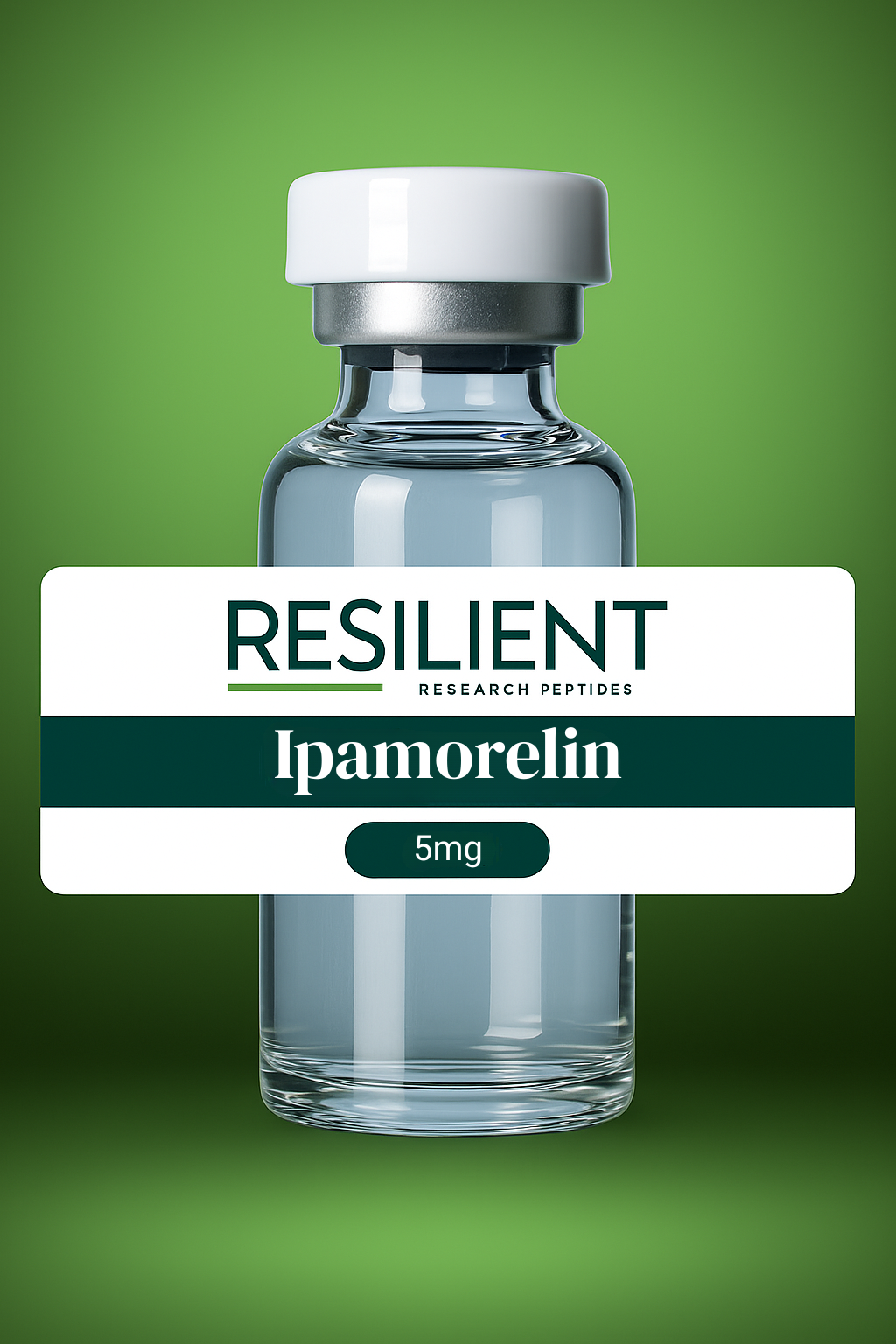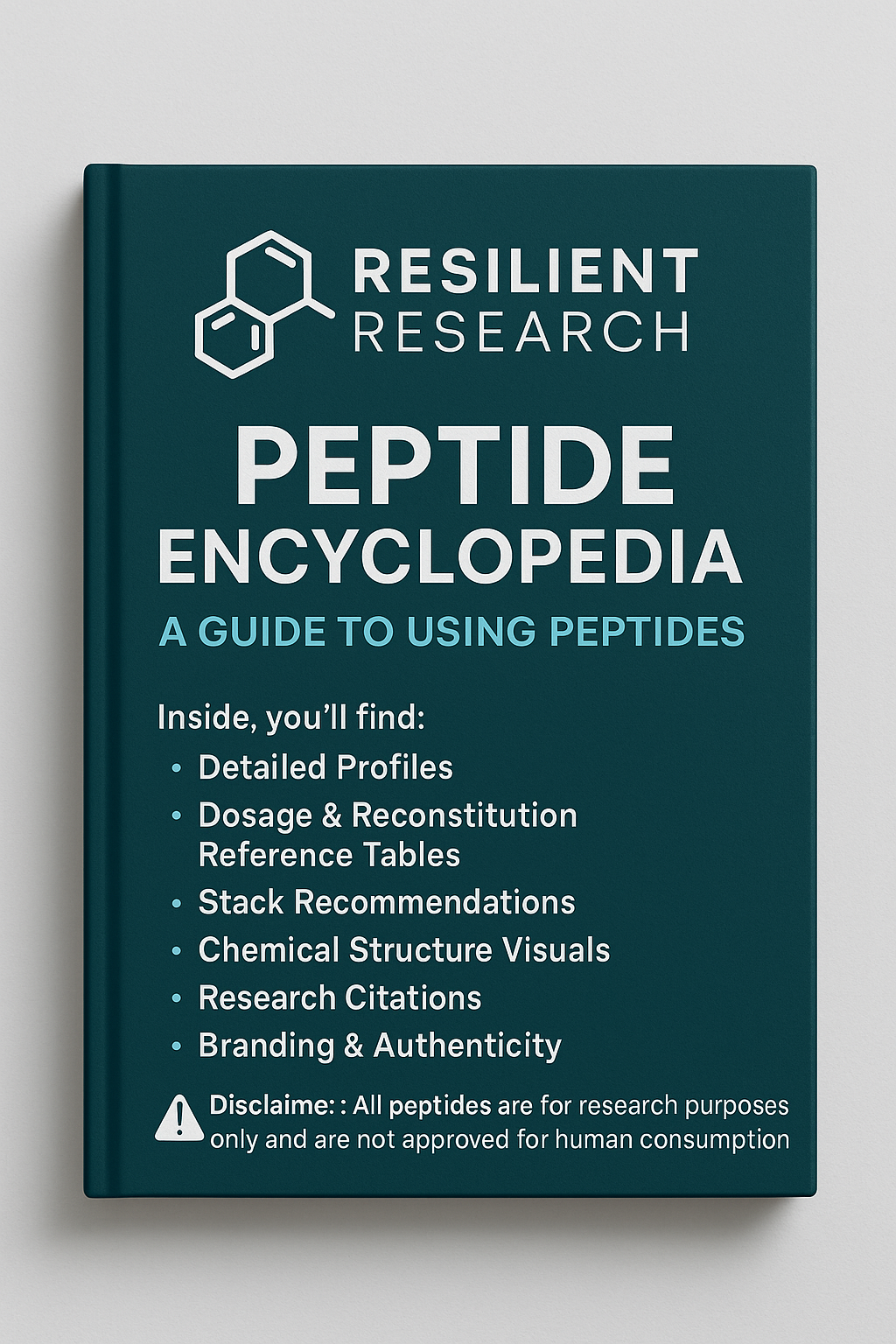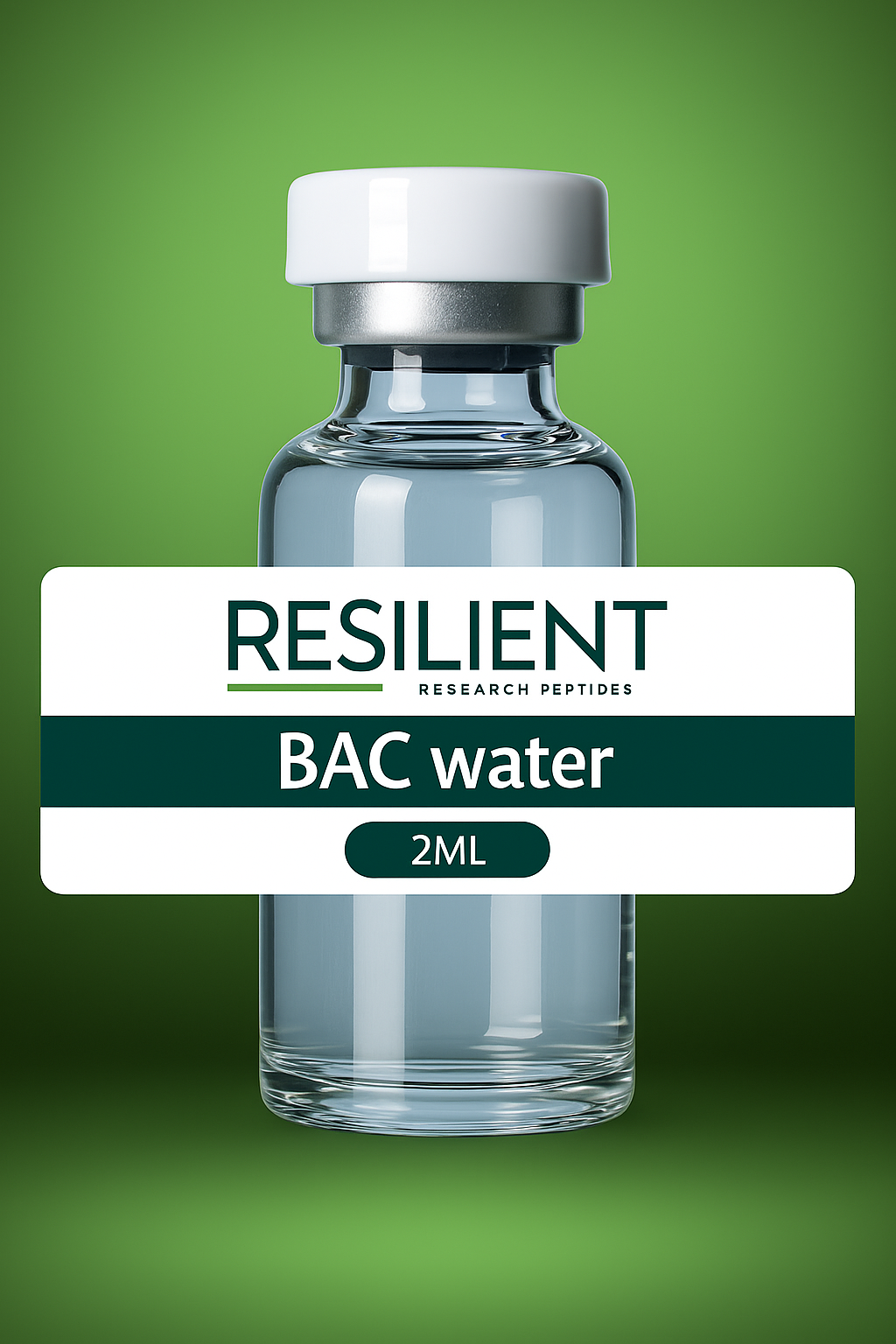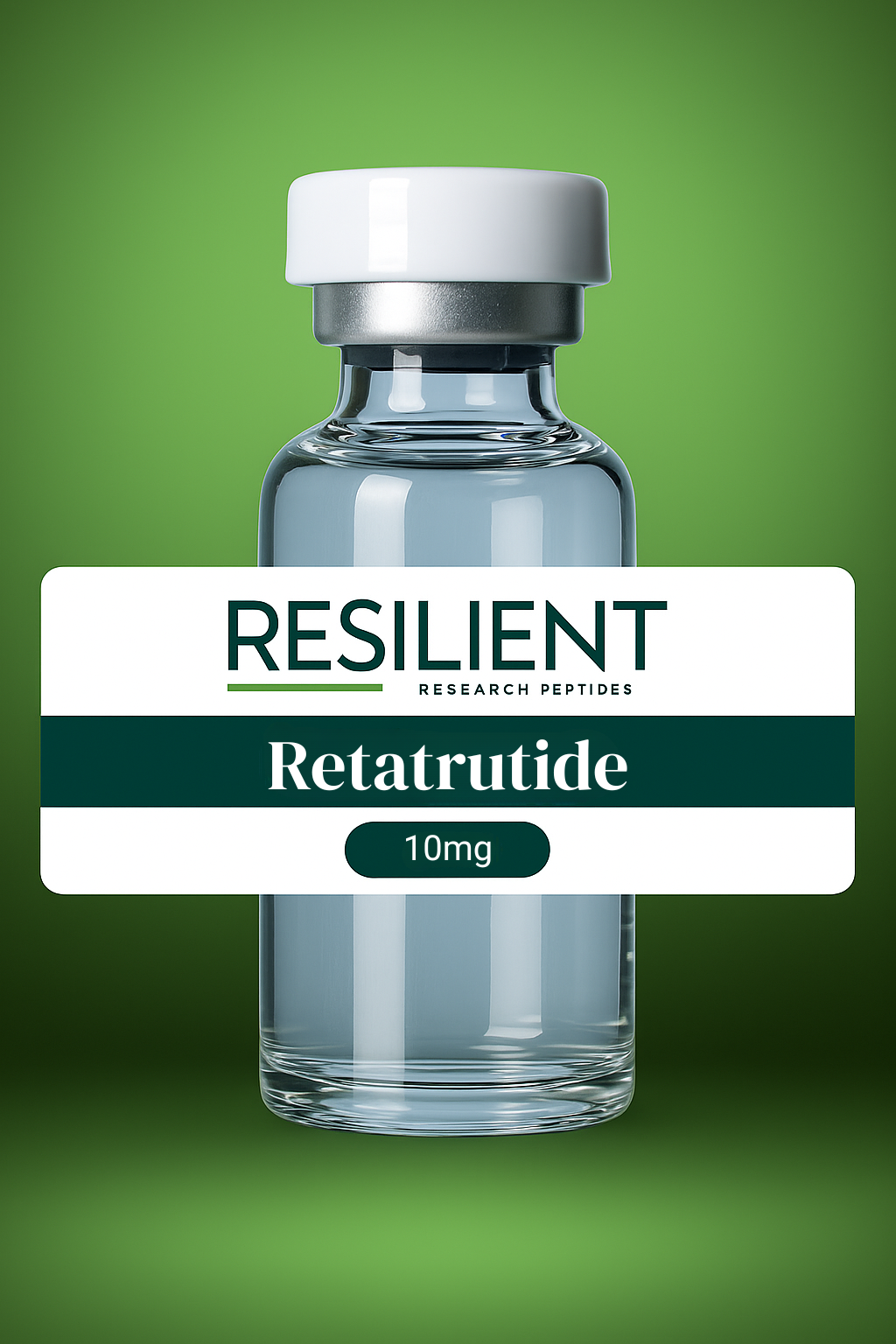 Image 1 of 3
Image 1 of 3

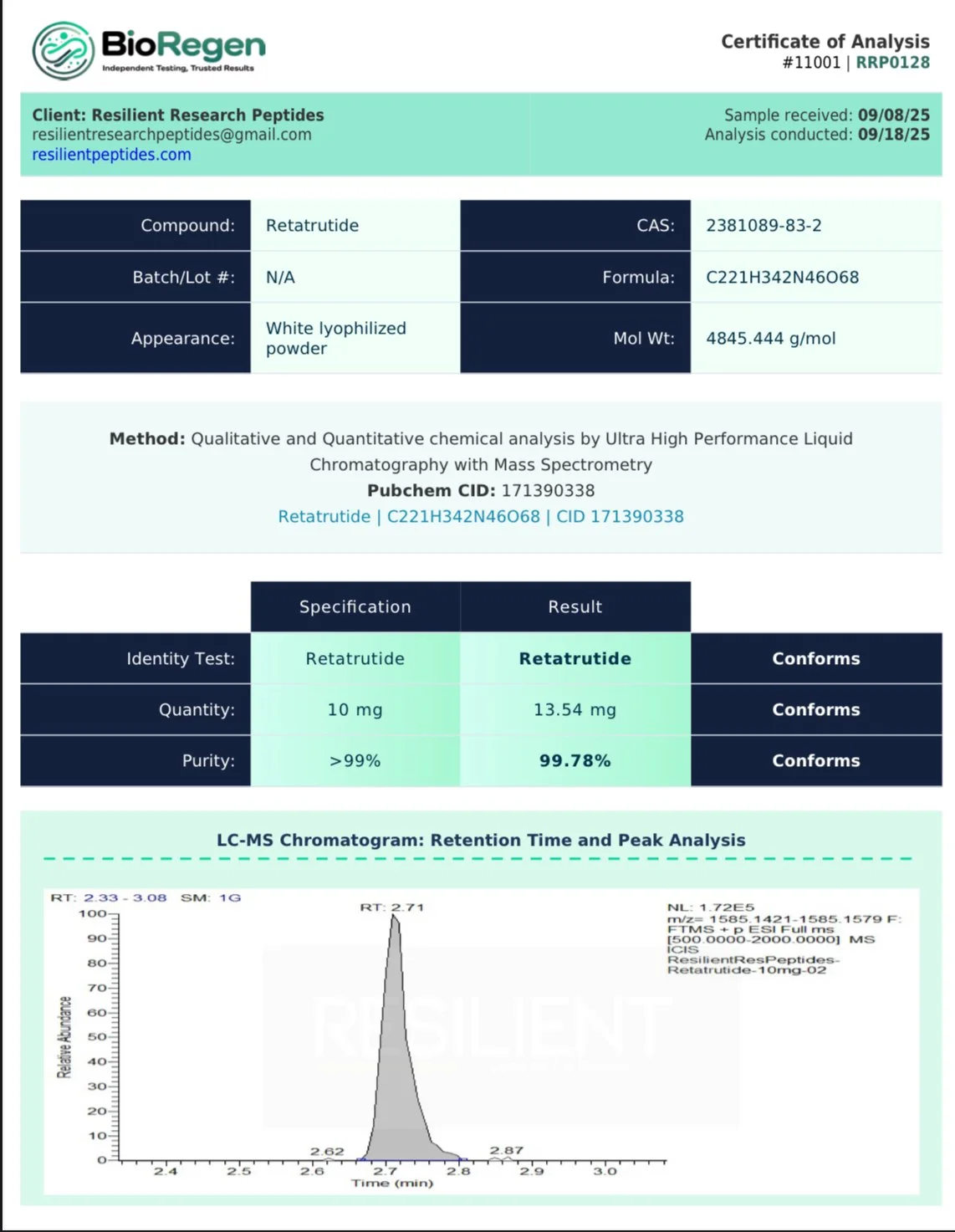 Image 2 of 3
Image 2 of 3

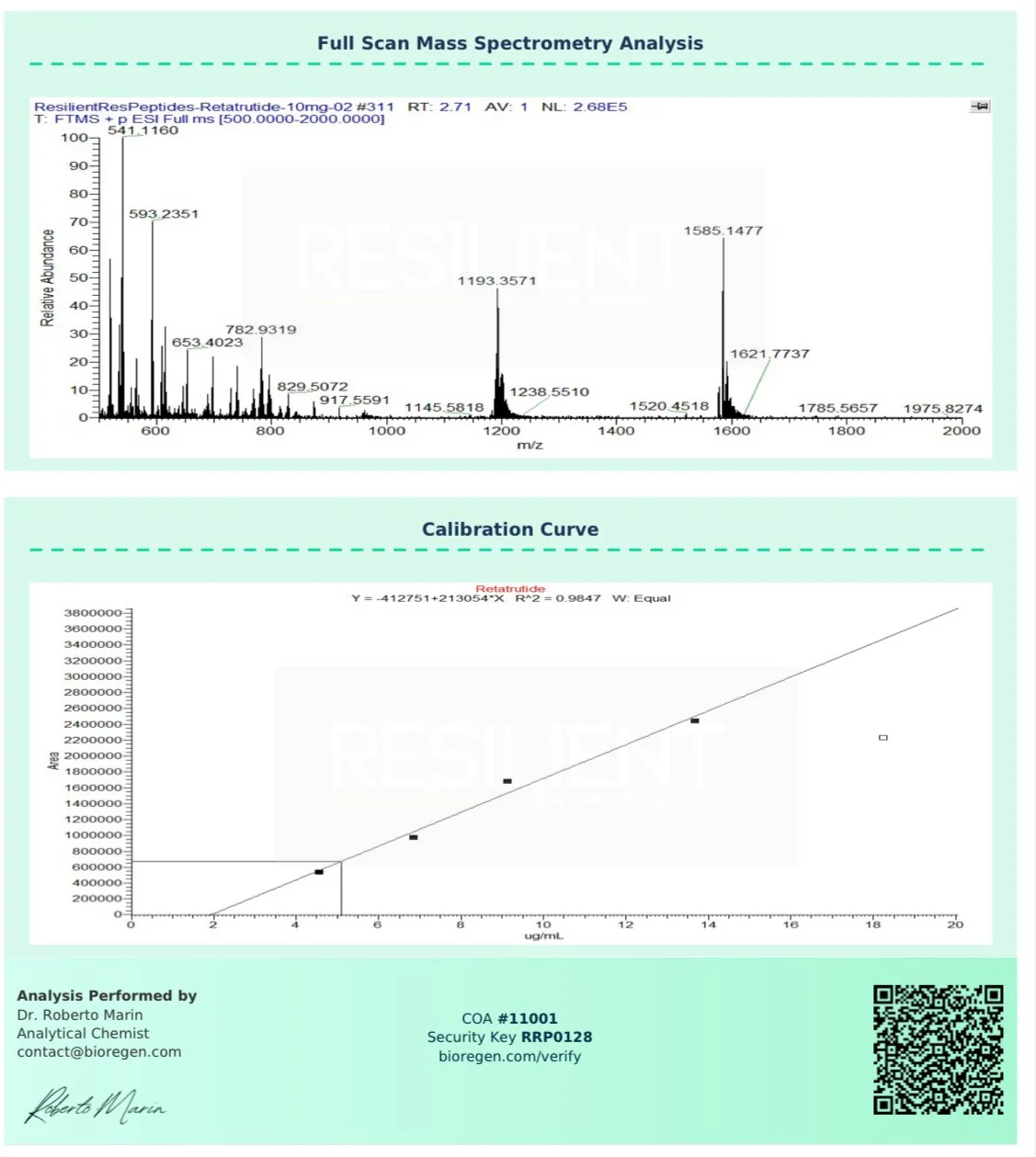 Image 3 of 3
Image 3 of 3




Retatrutide – 10 mg | Research Use Only (RUO)
Product Overview
Resilient Research Peptides’ Retatrutide (10 mg) is supplied exclusively for laboratory research purposes.
Retatrutide is provided strictly for non-clinical, in-vitro, and experimental research applications. No medical, physiological, therapeutic, or diagnostic claims are made or implied.
In controlled laboratory settings, Retatrutide has been investigated for its interaction with multiple peptide receptor pathways under experimental conditions. Research remains limited to laboratory environments.
Resilient Research Peptides supplies this compound solely as a research material and does not provide guidance regarding clinical use, dosing, administration, or application.
Product Specifications
Compound: Retatrutide
Quantity: 10 mg per vial
Form: Lyophilized powder
Purity: ≥98%
Testing: Independently verified
Intended Use: Laboratory research only
Certificate of Analysis available upon request.
Storage & Handling
Store according to established laboratory reagent handling procedures.
For use in properly equipped research facilities only.
⚠️ Research Use Only (RUO)
Not for human or veterinary use.
Not intended for diagnosis, treatment, mitigation, or prevention of disease.
No instructions for dosing, administration, or experimental application are provided.
Product Overview
Resilient Research Peptides’ Retatrutide (10 mg) is supplied exclusively for laboratory research purposes.
Retatrutide is provided strictly for non-clinical, in-vitro, and experimental research applications. No medical, physiological, therapeutic, or diagnostic claims are made or implied.
In controlled laboratory settings, Retatrutide has been investigated for its interaction with multiple peptide receptor pathways under experimental conditions. Research remains limited to laboratory environments.
Resilient Research Peptides supplies this compound solely as a research material and does not provide guidance regarding clinical use, dosing, administration, or application.
Product Specifications
Compound: Retatrutide
Quantity: 10 mg per vial
Form: Lyophilized powder
Purity: ≥98%
Testing: Independently verified
Intended Use: Laboratory research only
Certificate of Analysis available upon request.
Storage & Handling
Store according to established laboratory reagent handling procedures.
For use in properly equipped research facilities only.
⚠️ Research Use Only (RUO)
Not for human or veterinary use.
Not intended for diagnosis, treatment, mitigation, or prevention of disease.
No instructions for dosing, administration, or experimental application are provided.


